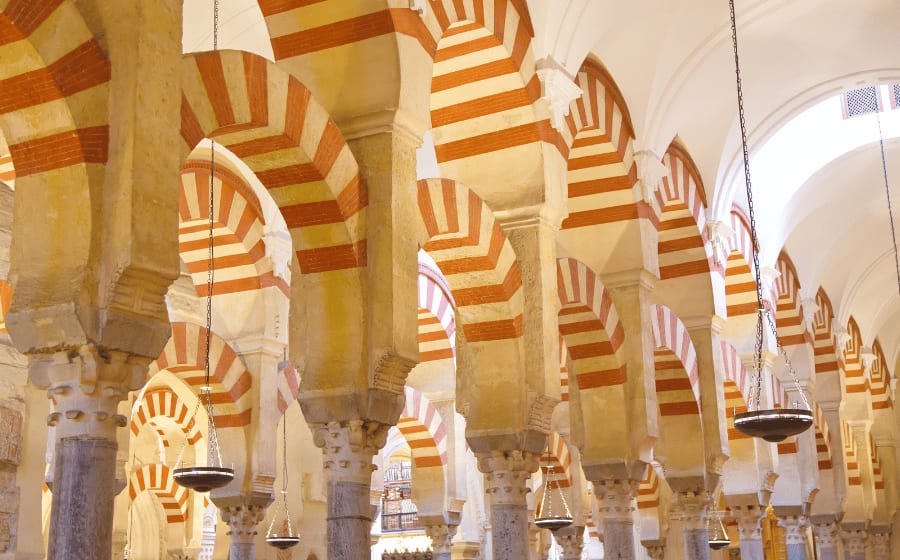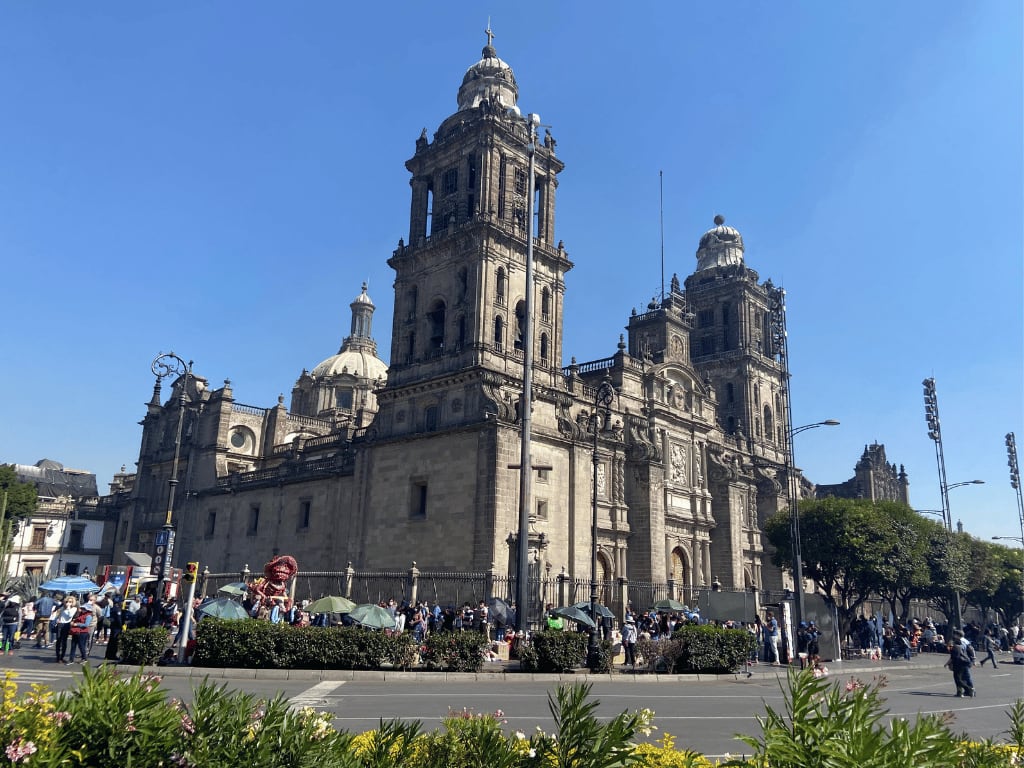Was Franco Communist? What Experts Say + 10 Interesting Facts
January 25, 2023
Win a FREE Trip to Spain!
Exciting Announcement! For the first time, we're thrilled to offer exclusive trips to the heart of Spain - an experience like no other. This isn't your typical tourist journey; it's a unique opportunity to immerse yourself in authentic Spanish culture, alongside real locals and our passionate team.
But there's more! Simply by requesting information about this amazing trip, you'll be entered into a special draw to win a Fully Paid Trip to Spain for Two. And that's not all - everyone who inquires will receive an exclusive bonus gift, valued at $500, available only now.
Ready to Discover the Real Spain?Click Here ↑ to Request Information & Enter the Draw!
In the middle of wars, with the uncertainty of rebuilding a country in ruins, hunger and barbarism, Spaniards faced an authoritarian phase that defined the country for the next 36 years.
This article will solve your question about Franco’s Ideology. After reading this, you’ll have an idea of the relevance of this period in Spanish history. And, if you’re interested in related articles about Spain’s history, these posts might be helpful:
This is not an opinion article. Instead, we’ll observe the statements of one of the most influential Historians of the Republic, the Civil War, and Francoism, Stanley George Payne.
Let us go back to The Second Republic Period and a weak, fragmented, revolutionary Spain.
Photo credits: Source
Table of Contents ▼ ▶
Who was Francisco Franco?
who-was-francisco-franco.png
Francisco Franco was born on December 4, 1892, in Ferrol, A Coruña (Galicia). He was a military man, dictator, and Spanish head of state.
His father was Nicolás Franco, a captain in the Navy and a colonial officer who died when Franco was 11 years old. And his mother, María del Pilar Bahamonde Pardo, came from a middle-class family with a maritime tradition.
At the age of 12, Franco entered a naval training school with his brother and later, in 1907, he managed to join the Military Academy of Toledo. He didn’t get good grades, which frustrated his pretensions of being assigned to Africa to participate in the Rif War. However, two years later, he was finally transferred to Morocco.
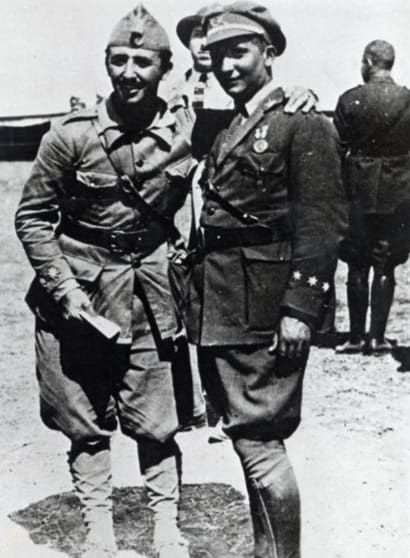
He participated in the African conflict from 1912 to 1926 in Morocco and made several trips back to Spain, giving him a rapid rise in the Spanish military hierarchy.
During the 14 years he remained there, he rose from soldier to general, passing through lieutenant (1912), captain (1914), and general in 1926. He became the youngest general in Europe at the age of 33.
He always exercised a firm and implacable command over the troops in the face of insubordination despite suffering severe wounds and hospitalization during the war.
Franco became part of the “Africanist” caste, the name given to soldiers stationed in the colony of Morocco. These people were admired by the rest of the military and the Spanish bourgeoisie for their courage and bravery.
In this context, on April 14, 1931, the Second Republic was proclaimed after municipal elections in which the Republican parties won in the large cities, although not in the countryside or in Spain as a whole.
The majority of the votes went to the royalist councilors. (Monarchist Votes: 30.165; Republican Votes: 8,950) But in the big cities, the republican councilors won (1,037 against 552 monarchists).
King Alfonso XIII exited into exile. The monarchy fell, and there was a change of regime in Spain.
Franco was loyal to the Second Republic until he decided to join the coup d’état in 1936.
When the coup failed, and the civil war broke out, he seized all the military and political power and established a personal regime: Francoism. But the coup d’état, in principle, was not against the Second Republic but against the government.
Then, in one of his several returns to Spain, Franco married Carmen Polo in 1923. Where Alfonso XIII, the King, served as best man at the wedding.
Franco returned to Spain in 1926. In 1936, a left-wing coalition known as the Popular Front won the elections.
Later, some militaries were unsatisfied with this triumph and were planning a revolt, and the government assigned them far from the peninsula.
Therefore, Franco was banished to the Canary Islands and got involved in a controversy between two sides:
- The part of the army that had remained in the peninsula during the Rif War was called: “peninsulistas.”
- And those who had been assigned outside were called “africanistas.”
Spain was polarized ideologically at the time, and many social changes occurred. Franco, along with the other military men, advocated a more conservative and strict system of government.
Was Franco Communist?
Francisco Franco was not a Communist. He ruled under the Francoism ideology, which was characterized by exalting a traditionalist and anti-modernist Spain, founded in particular on the Catholic religion and corporatism.
The characteristics of his government were:
- Spanish nationalism: He denied all political, linguistic, or cultural rights to regions, including Catalonia, Galicia, and the Basque Country.
- Rejection of liberalism: Restricting the political freedoms of association, assembly, and opinion.
- Anti-communism: Denial of class struggle.
- National Catholicism: The Catholic Church linked Franco’s regime with Spain as a nation chosen by God to defend Christianity, whose leader defended civilization.
- Single-party system: the only authorized party is the National Movement.
- Substitution of parliamentary democracy by the corporatist system known as organic democracy.
- The concentration of powers in the sole person of the Caudillo.
- Authoritarian State.
- Militarism.
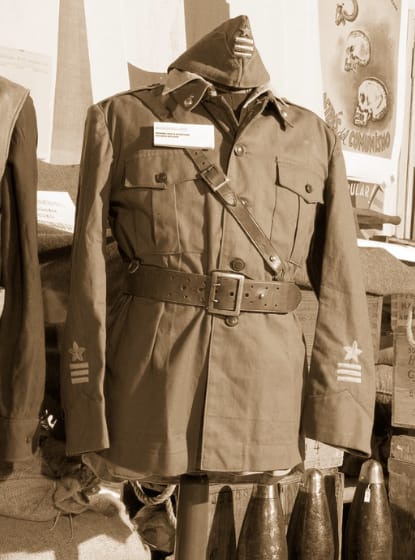
Still, it is complex to define Franco’s Ideology. To better understand it, I should mark Stanley George Payne’s words since he is considered, by many, to be the most eminent historian of the Republic, the Civil War, and Francoism.
Stanley is a prestigious American historian and Hispanist with a Ph.D. in History from Columbia University and even published a book on Franco’s regime that is said to be the best academic research papar about it! Find out here:
Moving on, Stanley was asked: What were the main strengths of the regime, and what aspects could have been improved? And he answered:
“Achievements: he won the civil war, a big and complicated challenge - by hook or crook - maintained Spain’s neutrality in the world war and managed the definitive modernization of the country. The sharpest criticisms have been and will be that he presided over the repression of that time (although it would not have been very easy to avoid, given the violence of the revolutionary process). He is also accused that he and his regime had a special relationship with Germany (which was true), and that he maintained a personal dictatorship for 39 years.”
Franco’s thoughts about Communism
These quotes and thoughts summarize what Franco actually thought about Communism and will give you an idea of his ideology:
“One thing that I am sure of, and which I can answer truthfully, is that whatever the contingencies that may arise here, wherever I am, there will be no communism.”
- “The Times and the Man” by Joaquin Arraras, (p. 159), 1938.
We do not believe in government through the voting booth. The Spanish national will was never freely expressed through the ballot box. Spain has no foolish dreams. “Spain: Voters Say ‘S.” content.time.com. June 27, 1977.
The whole secret of the campaigns unleashed against Spain can be explained in two words: Masonry and Communism… we have to extirpate these two evils from our land.
- “Masonry and Communism” by Jakin Boor (the alias of Francisco Franco) in the journal “Arriba” (December 14, 1946).
“We strive to form a single national front against the Judeo-Masonic lodges, against Moscow, and the Marxist societies.”
“Us Spaniards are united in our destiny. We cannot escape the dictates of geography and history; our nationality was forged by invasions. Long before other peoples, Spain was already a nation. As our character was tempered in the struggle, we were fierce in our independence and projected our ingenuity throughout the world until the invasion of foreign doctrines ended up plunging us into decadence. The secret to annul or defeat us was always the same; to divide us internally; thus, we lost the best years in which the world was transformed, with a century of constant infighting. That Spain that neither one nor the other liked pushed us to the Revolution. This came to break with those sad years of decadence to change the fate of our country. Our war, on both sides, was a struggle for our liberation.”
- (17-V1-1962: Valencia - Inauguration of the “San Vicente Ferrer” Trade Union Institution for Vocational Training).
“A totalitarian State will harmonize in Spain the functioning of all the capacities and energies of the country. Within the National Unity, the work estimated as the most inescapable must be the only exponent of the popular will.”
- Victory speech in Madrid (May 19, 1939), quoted in España Nuevo Siglo (1997) by Tim Connell and Juan Kattán-Ibarra, p. 174.
10 Interesting facts about Francoism Spain
- He wanted to promote a united and nationalist vision of Spain. Therefore, national symbols of Spain were promoted so the country would be represented internationally. Find out about them in this article:
- The repression of the opposition was intense, and sixty thousand people were executed between 1939 and 1945 alone, and political executions continued until 1975.
- In 1969, Franco proclaimed Prince Juan Carlos I as his successor. After Franco’s death on November 20, 1975, he rose to power. And the new monarch promoted a transition to democracy.
- As a child, he was called “el Cerillita” because of how thin and big his head was. Later, the Spaniards referred to him as “El Caudillo.” and had his own coins, called “Francos.”
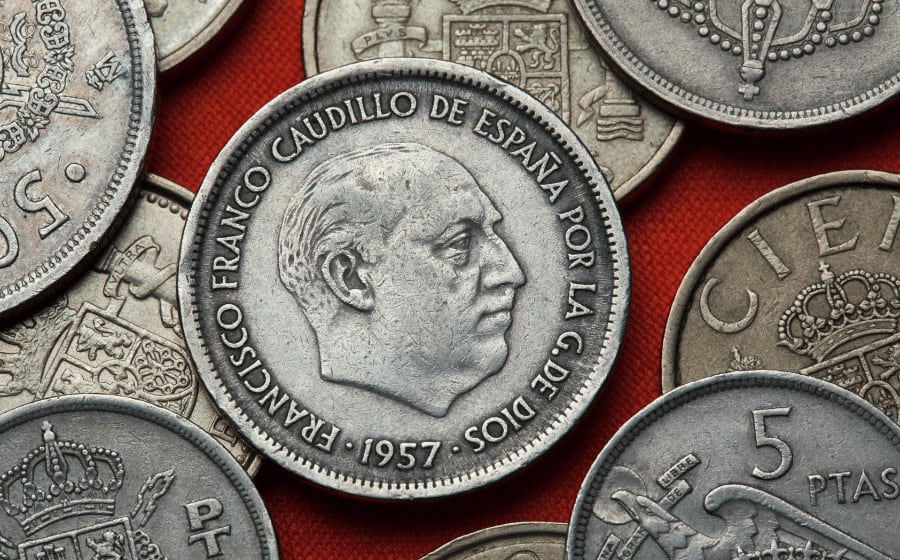
- In Spain, it was prohibited to speak any other language other than Spanish Castillian in the media, administration, businesses, or schools. This devastated the Basque and Catalan cultures and even banned his region’s language, Galician.
- Franco was conservative in his ideas. He valued order and authority above all and distrusted the parliamentary regime, liberalism, and democracy, which he believed to be the cause of the “decadence” of Spain in the 20th century.
- During the “Second Franco regime,” Spain had an economic boom. The “Spanish Miracle” is the name given to this specific period of rapid economic growth from 1959 to 1973. We have a complete article dedicated to this period in the following post:
What was the Spanish Miracle? How One Man Saved a Country
- Franco’s propaganda emphasized traditional nationalist and religious values, and his slogan was “Spain, one, great and free,” which emphasized Spain’s unity, greatness, and independence.

- Franco declared Spain’s neutrality in World War II.
- He was the only one among the 33,000 spaniards buried in “El Valle de los Caídos” who didn’t die in during the Civil War.
Indeed, one of the most decisive and intense periods in Spanish history. Well… that’s a wrap! I hope this article was helpful, and don’t hesitate to ask any questions!



